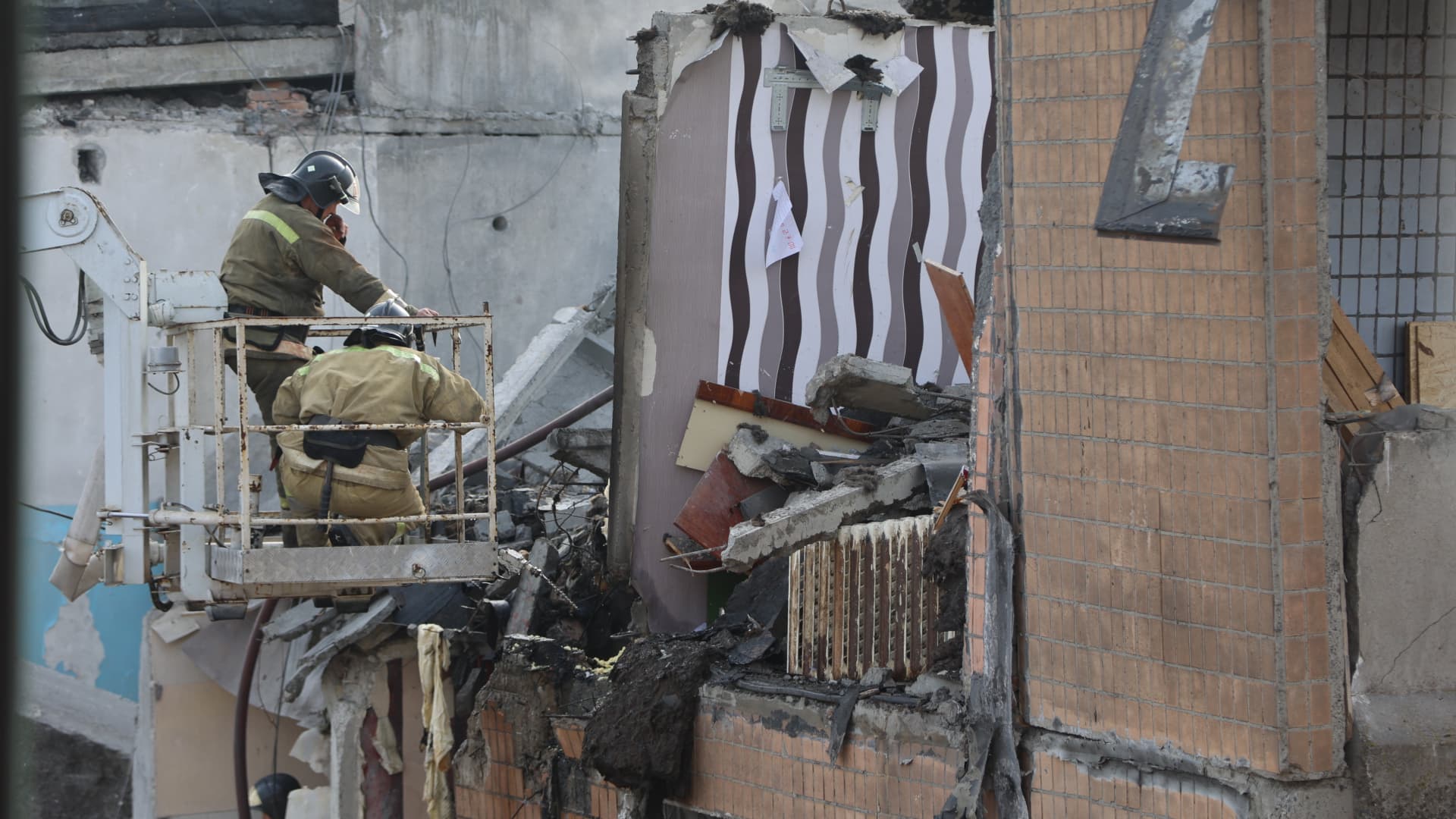Russia needs to show ‘success at home’ to justify war in Ukraine

A land grab in the Donbas region could be used by Russia to justify the war and claim victory, analysts said.
Leon Klein | Anadolu Agency | Getty Images
Russia will want some form of victory before backing down from the war in Ukraine — and escalation in the war is still possible at this point, political analysts told CNBC.
Even if Moscow is genuine about its pledge to reduce military activity near Kyiv, it is likely to regroup and focus on the Donbas region where they have seen some headway, they said.
The Donbas is a breakaway region in eastern Ukraine which comprises two pro-Russian self-proclaimed republics: Donetsk and Luhansk. Following Russia’s illegal annexation of Crimea from Ukraine in 2014, Russian-backed separatists in the region broke away from the Ukrainian government.
“The Russians are stronger in the east and may be wanting to reposition forces to the east to achieve a victory because right now, the Ukrainians [and] the international community see Russia more as a loser than a winner,” said William Courtney, an adjunct senior fellow at Rand Corporation.
Russia likely expected a quick victory when it invaded Ukraine on Feb. 24. Instead, there has been fierce resistance from the Ukrainians, and Moscow is still struggling to gain ground after more than a month of fighting.
Moscow’s announcement that it would cut back military activity around Ukraine’s capital has been met with skepticism.
Christopher Miller from Tufts University told CNBC that he saw Russia’s pledge to scale back forces from Kyiv as merely “a statement of the military reality” and a “distraction from the fact that the real fighting” is happening in the east.
“The Ukrainians had pushed them back somewhat, but the bulk of the fighting over the next couple of weeks is going to take place I think not in Kyiv, but in the Donbas and eastern Ukraine,” he said Wednesday.
“Russia is in the final stages of the siege of Mariupol on the coast of the Donbas and is trying more generally to grab a big chunk of territory from Ukrainian forces,” said Miller, an assistant professor of international history at Tufts.
“It’s trying to grab enough territory to package it as a success at home and justify the cost of this war,” he told “Squawk Box Asia,” adding that the cost was “far higher” than anyone in Russian government or the Russian populace expected.
Matthew Sussex, adjunct associate professor at Griffith University, echoed the same sentiment.
An escalation is still “very much possible” because Putin needs a win before he will agree to a deal with Ukraine, he told CNBC on Thursday.
Gaining control of Ukrainian ground will also strengthen Putin’s hand at the negotiation table, he said.
It makes sense for him to get as much Ukrainian territory as he can, Sussex separately told CNBC last week. “Then he can sell whatever he gets back home and internationally as a big victory, or at least a partial victory,” he said.
Russia-Ukraine talks
Russia and Ukraine are set to resume talks Friday, according to a member of Ukraine’s delegation.
Sussex said he sees negotiations between the two sides as a “stalling tactic to allow Russian forces time to regroup and take stock.”
Some analysts said negotiations may eventually get serious, but are not at this point.
“It’s gonna take you many more weeks and many more months until the Russians are willing to actually engage in real negotiations,” predicted Melinda Haring, deputy director of the Atlantic Council’s Eurasia Center.
“For right now, it seems like both sides are content to keep the war going because Ukraine doesn’t want to give in and Russia is not yet ready to give up,” said Miller of Tufts University.
He said the two sides are closer than before, but a few key issues have not been resolved, including which country will control the Donbas.
“I think it will be decided in part on the battlefield but also in part via talks, and I’m hesitant to say that we’re closer to a solution when this major territorial question remains fundamentally unresolved,” said Miller.
